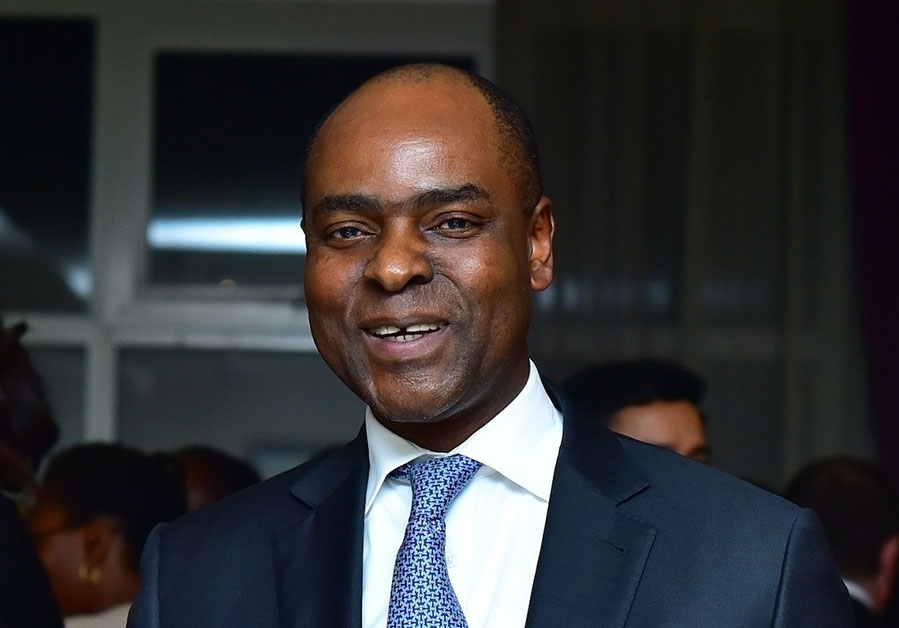Endeavor Nigeria, the leading community of high-impact entrepreneurs in the country, is set to hold its third annual scaleup entrepreneurship summit, “Catalysing Conversations” on Thursday, October 21.
Themed “The Multiplier Effect”, the event will feature a mix of moderated fireside chats and TED-style conversations involving entrepreneurs from Europe, South America, Asia, and Africa.
In an exclusive interview with TechCabal, Bolaji Balogun, founder and CEO of Chapel Hill Denham, who also sits on the board of Endeavor Nigeria as vice chairman, shares some insights on this year’s entrepreneurship summit while reflecting on the experience at Endeavor over the past three years.
Michael: After spending nearly 30 years in financial services and mobile telecommunications, what motivated your decision to take on the role at Endeavor Nigeria?
Bolaji: Endeavor is a uniquely powerful organisation and so essential to developing the entrepreneurial culture in any market, especially here. When you think about it, Nigeria has had traders for more than 150 years, but when it comes to formal entrepreneurship and businesses, the history is less than 30 years old.
The mission here is in recognition that we live in a country of predominantly young people. Now, the biggest employers of labor are SMEs and MSMEs but, often, companies of that size are faced with the challenge of understanding and learning how to scale. And that’s where Endeavor comes in: it is focused on working with startups that have the ability to scale by providing them with three key things.
One is access to capital, which is important but on its own is never enough. Then there is access to networks. If I can open the door for a startup and introduce them to somebody or a company that’s travelled that journey ahead of them and which they can build a partnership with, that can be very valuable to them. The third is access to mentorship. The ability to find mentors, whether in Nigeria, Africa, or a global scale, and pairing them with a startup leaves room for experience sharing. These are important for startups to scale.
Michael: Do you think Nigeria’s earliest set of formal entrepreneurs had it easier compared to now?
Bolaji: I would not say any of the eras is easier to navigate, but there are fundamental differences. Back then, entrepreneurs had it easier in terms of competition because there were very few others. But today, everyone wants to be an entrepreneur. People get out of school and the first thing they think about is, “I want to work for myself, develop something or run my own business.” It’s a very different competitive culture and environment that we have today.
The second thing is that 30 years ago, only a few entrepreneurs had access to the external world. Today, because of social media and Nigeria being a much more open economy, an entrepreneur here has complete access and that’s why 90% of capital invested in Nigerian startups today comes from Silicon Valley and other parts of the world.
Michael: Can you give me a glimpse into what you do at Endeavor Nigeria?
Bolaji: I was one of the founding directors and am vice-chairman of its board. The Endeavor model is not-for-profit and we count on certain people to support us with their time and resources, in terms of providing capital to run the organisation and mentorship time. The board finances our operations so each of us as directors makes a commitment every year to support the running of operations.
Endeavor works with entrepreneurs, taking them through a variety of programmes that leads to them being selected as Endeavor entrepreneurs. Throughout the process, we’re working, mentoring, and providing them with access to a broader stage of mentors. We have about 30 talented and accomplished Nigerian individuals. Some have built businesses, others are C-suite executives who are mentoring these young businesses on a monthly basis.
Then there’s the Endeavor Catalyst Fund, for entrepreneurs that make it through the selection processes. The fund invests to support their next rounds of capital raising and helps to attract world-class investors using the Endeavor brand.
Michael: What’s the experience been like, working with a network of entrepreneurs?
Bolaji: Exciting. It’s important because no nation has been ever built without a strong core of local entrepreneurship. The more you invest in the ecosystem, the more the nation will become prosperous, and big, sustainable and valuable businesses will be built. That is really key and there’s no organisation like Endeavor in that sense anywhere in this country. It’s quite unique.
Also, we’re creating a concept where we expect the companies we help to do so for others coming behind them. And that idea of giving back or paying it forward is really key to the sustainability of the ecosystem. So when you look at the Endeavor influence in, say, 20 years’ time, you’ll see a significant amount of big businesses built in Nigeria, many of which have come through the network; an incredible network of entrepreneurs who have helped and mentored other people and invested in other businesses coming behind them. This is a very powerful proposition in developing the entrepreneurship ecosystem. This is what builds a nation and helps to build sustainable prosperity and private capital.
Michael: How about challenges experienced so far?
Bolaji: Firstly, selling the vision and message. At the outset, finding directors who were prepared to pay and support the work we do was not exactly easy. Often, directors get paid. So finding those that would pay for the pleasure of being directors was a little difficult.
Also quite challenging was finding enough female directors, which I think is really important. Our SME startup ecosystem is significantly represented by women. Therefore, having people that look like them on the board with us is so fundamental. Notwithstanding, the impact of Endeavor is already significant in the ecosystem.
Michael: In over three years at Endeavor, who or what business have you found to be most exciting?
Bolaji: There are a number of entrepreneurs that we work with and they’re all equally exciting. But, obviously, we have a few stars who have built high-value businesses. However, for me, the impact of high valuation is not as significant as the key problem your business is solving.
Secondly, who are you employing and how many jobs are you creating, whether directly or indirectly? These, for me, are much more significant in the long term.
Michael: What attributes or qualities do you look out for in entrepreneurs at Endeavor?
Bolaji: Entrepreneurs have some natural things that make them successful. But if you find those who are not teachable, or open to making a pivot, for me, it’s an alarm bell. No matter how great the business is, I run.
Also, when I find an entrepreneur who doesn’t understand that greater purpose, which is: what fundamental problem you’re solving or what impact you’re having on the ecosystem… It’s less interesting.
It’s important that the business logic adds up, but it’s all about the entrepreneurs, their mindset, impact, and vision they have, and how that can change lives. When you live in a country where there are so many young, unemployed and poor people, then that impact message is even more substantial and really important.
Michael: What inspired the new 10-week Endeavor ScaleUp Program and how’s it different?
Bolaji: The ScaleUp is an opportunity to provide entrepreneurs with detailed immersion in terms of understanding elements that are important to scaling a business and doing that very quickly. The best and most successful startups have one particular concept. Often, the businesses that succeed aren’t necessarily the most perfect ones where people waited and got everything right. But those that are able to enter the market, disrupt it, gain market share very quickly, continue to sustain that growth, and deliver very significant margins.
The programme is about working with these entrepreneurs to scale their businesses. Nowhere is it harder to scale a business than here. If you built a business in Europe or North America, you could easily land a world-class CFO but that’s not as easy to do here. The base of experienced talent to help you scale a business isn’t prevalent or widely available.
Then there are all kinds of significant infrastructure and regulatory constraints, although regulation is non-negotiable in some cases, especially if you’re dealing in other people’s money. You’ve got to embrace it. There are a lot of issues in our ecosystem that make scaling a lot more complicated.
Michael: And what can we expect from the 2021 ScaleUp summit?
Bolaji: The event is about bringing together a cross-section of entrepreneurs, experienced business leaders, and mentors to exchange ideas, provide content and context for the wider entrepreneurship ecosystem here around the attributes required to scale. That is, some of the things an entrepreneur should be looking out for as they progress from a particular point to another. One is how to scale in a risk-managed way because as you’re scaling very quickly, you’re also opening up to a tremendous amount of risk. These are some of the issues that will be touched on.




















